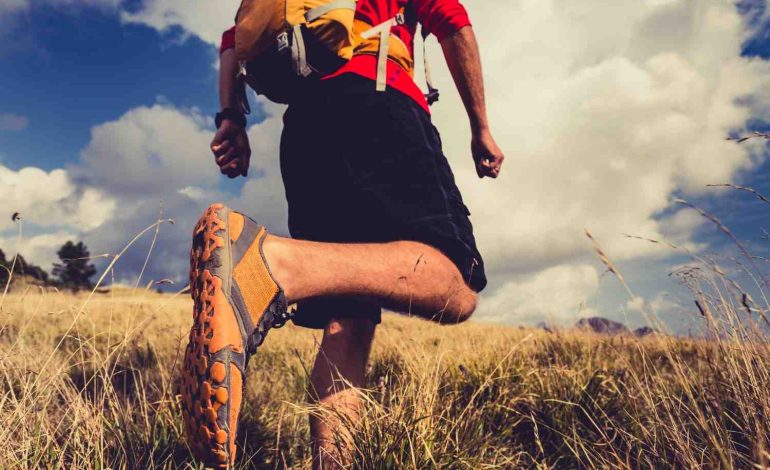
How Can Outdoor Recreation Rejuvenate Your Mental Health?
Outdoor recreation is a critical element of a balanced lifestyle since the impacts of such an activity on mental health are profound. You can improve your health by a long way by doing outdoor-related issues, hiking, biking or taking a stroll in the park. This blog post will explore the psychological health benefits of outdoor recreation and provide tips to help you integrate this into your daily routine.
Why Outdoor Recreation is Important to Mental Health
Natural environment factors are quite essential in ensuring mental health. Being in nature has been associated with lower emotional stress, better mood as well as cognitive ability. Outdoor activities may serve as a much-needed respite from the madness of everyday life, allowing people to take a break and reconnect with themselves.
The studies show that outdoor time can decrease the amount of cortisol, a hormone responsible of stress, and increase the amount of endorphins which are considered natural mood lifters in the body. Moreover, outdoor recreation promotes physical activities which are known to help fight anxiety and depression.
Signs You Could Benefit from Outdoor Recreation
Being aware of the symptoms that may be a sign you need a mental health boost can be the initial step toward improvement. Common indicators include:
- High Level of Stress: Experiencing more stress or anxiety.
- Low Energy and Motivation: An apparent low interest in everyday functions.
- Difficulty Concentrating: Finding it hard to concentrate on tasks or being mentally blurred.
- Social Withdrawal: A person withdraws from themselves and does not associate with friends or family.
- Fluctuations in Mood: Feeling irritable or depressed most of the time.
When you find yourself experiencing any of these symptoms, incorporating outdoor recreation into your life can help revitalise your mind.
Benefits of Outdoor Recreation on Mental Health
Relaxes the mind and minimises stress and anxiety. The time spent in nature calms the mind. A walk in the forest and time spent near a lake can significantly reduce stress levels and evoke a sense of calmness.
- Improves Mood: Exercising and engaging in Outdoor activities may improve one’s mood and make them feel happier. The sunshine and physical activities increase the synthesis of serotonin, a neurotransmitter that helps people feel a sense of well-being.
- Increases Self-esteem and Confidence: Outdoor activities may help make one feel like an achiever. When climbing a mountain or taking a walk, it is possible to increase self-esteem and confidence by achieving goals in nature.
- Promotes Socialising: Outdoor recreation activities usually entail group activities and can enhance social connections and help fight loneliness. Social network can be developed by attending community events or participating in outdoor clubs.
- Enhances Cognitive Function: Nature contact has been found to enhance attentiveness and thinking. Intense activities such as mountain biking or hiking involve a degree of concentration and this is a great way to sharpen your mind and enhance your brain function.
Tips to Incorporate Outdoor Recreation into Your Routine
- Start Small- Daily Walks Start by walking around your neighbourhood or your local park at short walks. At least 15-30 minutes a day is a goal to enjoy the advantages of fresh air and nature.
- Explore New Activities: Try various outdoor activities to see which things you like most. Think about hiking, bicycling or even gardening. Diversity would make you active and inspired.
- Find a Group or Class. Find some local outdoor fitness classes or clubs. The solution is to join a community group, which will allow you to engage socially and keep yourself responsible to your outdoor ambitions.
- Plan periodic outdoor dates. Have regular dates in your schedule with outdoor activities. Jogging or picnicking on a weekend or a weekday, it can improve your mood when it becomes a priority.
- Switch off Technology, unplug and spend time in the natural environment. Being offline allows you to be present and fully enjoy the world around you.
- Mindfulness Outdoors Adoption: Outdoor experiences are combined with mindfulness practices, such as meditation or yoga. Dwelling on your senses and the beauty of the surrounding world can help to clear your mind.
Conclusion
Outdoor recreation is an effective instrument of improving mental condition and well-being. On a personal level, through the advantages of nature or other outdoor activities, you can alleviate stress, boost your mood, and build social relationships. It is essential to remember that the mental health process of each individual is unique; simply listen to your body and mind, and adjust outdoor activities accordingly.
Would you like to learn more about mental health and wellness? You must not miss other pieces of information and materials we provide on our site!


